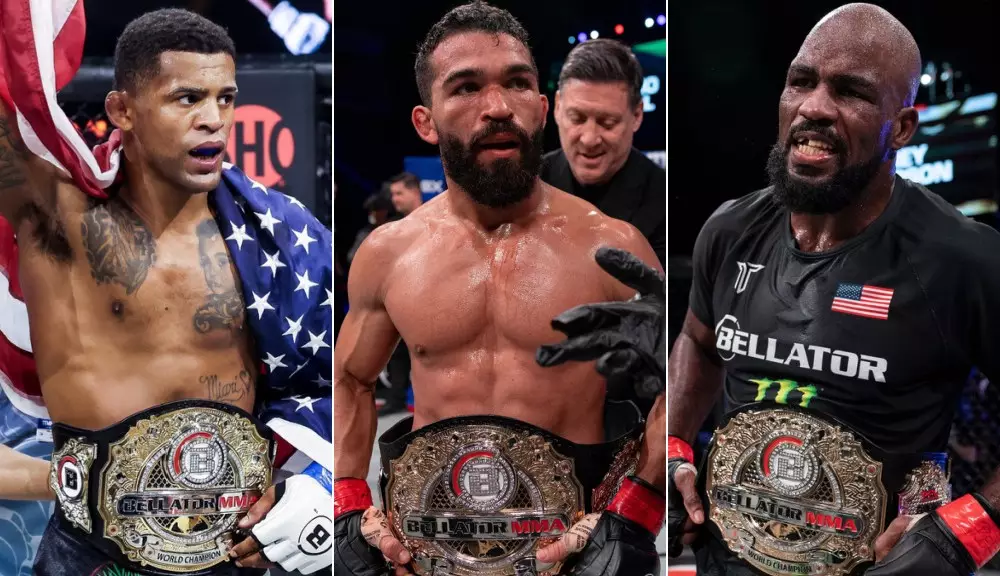The recent acquisition of the Bellator MMA promotion by the Professional Fighters League (PFL) was heralded as a significant milestone in the mixed martial arts landscape. Promising to elevate opportunities for fighters, the transition aimed to blend the organizations’ strengths and create a more competitive environment. However, as time has passed since this merger, it has become increasingly evident that many fighters are feeling abandoned and voicing their frustrations over a lack of communication and clarity regarding their futures. The situation raises critical questions about the PFL’s commitment to its athletes and its operational strategy moving forward.
Prominent fighters such as Patchy Mix, Corey Anderson, and Patricio Freire have taken to social media to express their dissatisfaction with the PFL’s handling of their situations. This public airing of grievances indicates not only individual discontent but also a systemic failure within the organization. Anderson, the light heavyweight champion, highlighted his plight by lamenting the absence of communication and updates, stating he felt as if he were “aging like warm cheese” due to inactivity. This frustration is compounded by the fact that active competition is vital for fighters in their prime, both for career progression and for financial stability.
Mix reiterated similar sentiments, revealing his disappointment after the cancellation of a highly anticipated title defense. His situation amplifies a growing worry among fighters that time is slipping away without a clear path forward. The theme of neglect recurs in the experiences of multiple fighters, many of whom are left wondering about the future of their careers as they await information from the PFL brass. This lack of updates can lead to anxiety and uncertainty, ultimately affecting training regimens and mental health.
Since the acquisition, there appears to be a diminishing emphasis on the Bellator brand itself, raising concerns about how fighters are being treated in this transitional phase. The PFL initially planned to host eight Bellator Champions Series events, including numerous title bouts throughout the year. However, as the competition schedule unfolded, only five events were conducted, with only one featuring multiple title fights. Notably, an event scheduled in Dubai highlighted the PFL’s shift away from the Bellator identity, creating further confusion and concern for athletes who previously represented that promotion.
Furthermore, prior to the merger, athletes were assured of a stable competitive environment where they could expect regular fight schedules. This has not materialized as promised, causing further discontent not only among champions like Freire, who expressed worry over having fought only once this year, but also among other fighters whose careers hang in limbo. The apparent dismantlement of Bellator’s framework begs the question: Are fighters merely pawns in a larger corporate chess game?
While PFL executives remain largely silent in the face of mounting complaints, the call for transparency has never been more pressing. Fighters often dedicate their lives to the sport, training rigorously to maintain peak performance and endure the physical strain of competition. However, when organizations fail to provide clear communication regarding fight schedules, promotional efforts, and contract negotiations, they risk alienating their most valuable assets—the athletes.
Former Bellator middleweight champion Gegard Mousasi epitomizes the struggles many fighters are facing; he publicly revealed his frustrations over contract disputes and the lack of consideration from management. This atmosphere not only affects individual fighters but could resonate throughout the MMA community as other fighters spring into action to advocate for their rights.
This dire need for clarity and involvement in decision-making processes cannot be understated. As many fighters are finding themselves sidelined and uncertain, promoting a culture of open dialogue could significantly enhance fighter morale and foster a sense of community within the organization.
The challenges currently facing fighters post-Bellator acquisition are indicative of larger systemic issues within the MMA industry. As organizations like PFL seek to solidify their market share and enhance their profile, they must prioritize the well-being and satisfaction of their fighters. The sport thrives on the passion and dedication of its athletes, and their concerns should be addressed proactively.
In the wake of rising discontent, fighters are calling for accountability and respect from the PFL and its executives. Existence within a sport like MMA should not feel like a gamble for fighters’ careers; they deserve to have a partner in their promotions that honors their commitment and aspirations. Moving forward, both the fighters and the organizations must engage in a collaborative dialogue aimed at safeguarding the athletes’ futures while cultivating the flourishing sport of mixed martial arts.

